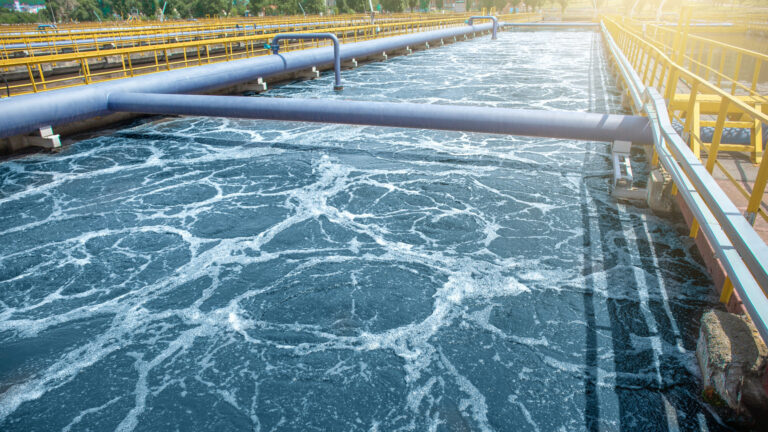Table of Contents
In today’s industrialized world, the treatment of waste water is no longer just a regulatory requirement but a necessity for sustainable operations. Industries across various sectors generate significant amounts of industrial wastewater, and managing this effluent efficiently is crucial for maintaining environmental standards and reducing operational costs. This is where an industrial sewage wastewater treatment plant comes into play.
Let’s explore why having a waste water treatment plant is so important for industries and how it benefits both businesses and the environment.
1. Compliance with Environmental Regulation
One of the primary reasons industries invest in industrial effluent treatment plants is to comply with environmental regulations wherever applicable. Several governments worldwide have set strict standards for wastewater discharge to prevent pollution and safeguard public health. An industrial wastewater treatment plant helps industries meet these regulations by treating effluent to remove harmful pollutants before being released into the environment. This ensures that companies avoid hefty fines and legal actions, while also contributing to the protection of natural water bodies.
2. Reducing Water Pollution and Protecting Ecosystems
The release of untreated or inadequately treated wastewater into rivers, lakes, and oceans can cause severe environmental damage. Industrial effluent treatment plants are designed to filter out toxins, chemicals, and heavy metals from wastewater before it is discharged, thereby preventing pollution. By removing harmful substances, industries can help protect aquatic ecosystems and maintain biodiversity. Proper industrial filtration plant systems ensure that water released back into the environment is safe and won’t cause harm to wildlife or disrupt ecosystems.
3. Conserving Water Resources
Water scarcity is an increasing concern in many parts of the world, and industries are under pressure to reduce their water consumption. An industrial water and wastewater treatment system allows industries to recycle and reuse water, significantly reducing their reliance on freshwater sources. By implementing efficient industrial wastewater treatment plant solutions, businesses can treat and reuse water for non-potable purposes such as cooling processes, irrigation, or cleaning, contributing to water conservation efforts.
4. Improved Operational Efficiency and Cost Savings
Investing in an industrial filtration plant can also lead to significant cost savings for businesses. By treating and reusing wastewater, industries can lower their water bills, reduce the need for external water sources, and minimize the purchase of fresh water. Moreover, by properly treating wastewater, companies can reduce the wear and tear on equipment that might otherwise be impacted by poor water quality, increasing the longevity of their machinery and reducing maintenance costs. A well-maintained industrial wastewater treatment plant ensures smooth operations and helps industries save money in the long run.
5. Energy Recovery and Sustainability
Modern industrial wastewater treatment plant systems not only focus on cleaning wastewater but also on energy recovery. Some treatment processes, such as anaerobic digestion, convert organic matter in wastewater into biogas, which can be used to power the plant or other industrial processes. This reduces the overall energy consumption of the facility and supports the transition to more sustainable, energy-efficient operations. By integrating renewable energy sources into industrial water and wastewater treatment systems, industries can further reduce their carbon footprint.
6. Improving Corporate Reputation and Stakeholder Trust
Today’s consumers and investors are more concerned about environmental sustainability and corporate responsibility than ever before. By investing in a waste water treatment plant, industries can demonstrate their commitment to environmental stewardship. This not only helps build a positive reputation but also enhances stakeholder trust. Companies that adopt eco-friendly practices and reduce their environmental impact are more likely to attract customers, investors, and partners who value sustainability.
7. Supporting Public health and Safety
Improperly treated industrial effluent can contaminate water supplies, leading to serious public health risks. By using industrial wastewater treatment systems to filter out harmful contaminants, industries contribute to the safety of local communities. Proper treatment prevents waterborne diseases, protects local populations, and ensures that communities have access to safe, clean water. This proactive approach to water management is an essential aspect of corporate responsibility.
Conclusion
The importance of having an industrial wastewater treatment plant cannot be overstated. These plants help industries meet regulatory requirements, reduce water pollution, conserve resources, improve operational efficiency, and enhance their sustainability efforts. By investing in an industrial filtration plant, industries can not only protect the environment but also improve their bottom line and reputation.
As water scarcity becomes a growing concern and environmental standards become stricter, the need for effective industrial water and wastewater treatment solutions will continue to increase. Businesses that prioritize wastewater treatment will be better equipped to navigate these challenges and contribute to a more sustainable future.


Good reads are meant to be shared





